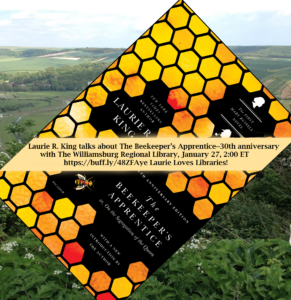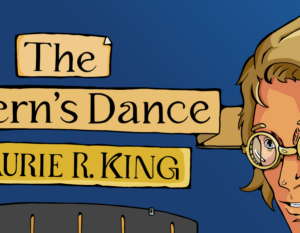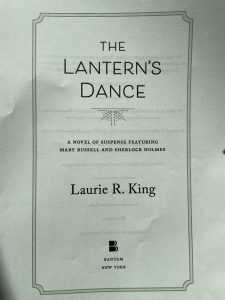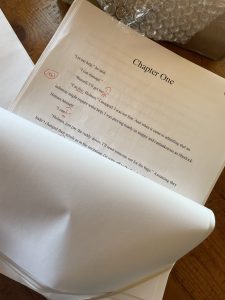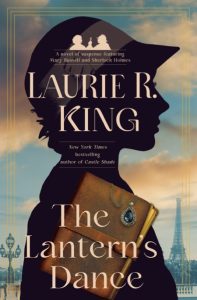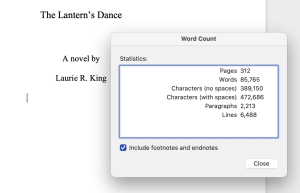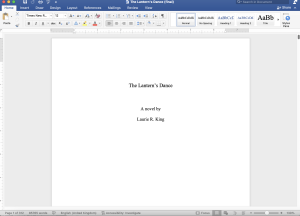Mary Russell
Judith’s Brooch?
One of the joys of writing a long-lived series is the community that grows up around it. Which means I get letters like this one—a particularly appropriate post, since June, 2024 is the centenary of when Russell & Holmes were in San Francisco working on the events of Locked Rooms: Hi Laurie, sort of an…
Read MoreBeekeeper at the Libraries, #1!
Saturday sees the first in the Laurie Loves Libraries celebrations of the Beekeeper’s 30th birthday! This one’s a hybrid event, where I’ll be in my study talking with gathered patrons of the Williamsburg Library—and, with people online. I have to say, Williamsburg (headed up by the fabulous duo of Avery and Allison) really threw itself…
Read MoreWhy we Love Publicity and Marketing
As we’re on the edge of being able to get our hands on an actual finished copy of The Lantern’s Dance (Feb 13) I thought this was a good time to look at one of the last pieces in the process of getting a book from the author’s mind to the reader’s eyes: Marketing and…
Read MoreProof Positive
Because to the reader, a book goes from vague idea to hardback-in-hand, I’m doing a series of blog posts (no spoilers!) about the actual process for The Lantern’s Dance. (Though rest assured—it’s still pretty magical.) I’ve just finished the proof pages—those pages where the much-marked-up manuscript is formatted to look like the actual final hardback.…
Read MorePost-Final Drafts
This is one of a series of blog posts (no spoilers!) about the actual process of writing a book from the idea to the hardback in hand. In this case, the group effort behind the magic. I’ve talked about how The Lantern’s Dance began, and about the ongoing process of working with my editor,…
Read MoreThe BUZZ has a question
My newsletter, The Buzz, just went out–and there’s a survey in it asking if you’d like to come to one of the FOUR Russell & Holmes events being held next year. We’re in the process of negotiating with the hotels, so we need to have a rough idea of numbers. In case you didn’t get…
Read MoreNot Just a Pretty Face: Cover Art
(Because what I do for a living often seems like magic—I come up with an idea and *POOF* the book’s in your hand—I thought I might do a series of blog posts (no spoilers!) about the actual process. (Though rest assured—it’s still pretty magical.) In the publishing world, cover art comes before the book is…
Read MoreFeeling the Draft(s), First to Final
Because what I do for a living often seems like magic—I come up with an idea and *POOF* you have the book in your hand—I thought I might do a series of spoiler-free blog posts about the actual process. (Though rest assured—it’s still pretty magical.) April 1: first draft sent. (I talk about the earlier…
Read MoreWhat IS in a Name, Anyway?
Because what I do for a living often seems like magic—I come up with an idea and *POOF* you have the book in your hand—I thought I might do a series of blog posts about the actual process. (Though rest assured—it’s still pretty magical.) How do we writers name our babies? The ones on the…
Read MoreHitting “SEND”
I hit the SEND button–wahoo! First draft, hence short, untidy, and incomplete…but it’s sent, out into the editorial world. Now I wait, and see what she thinks. (*sound of chewing fingernails**) I think I’ll reward the newsletter subscribers with the first page this weekend. Or if not reward, at least give them something to talk…
Read More
